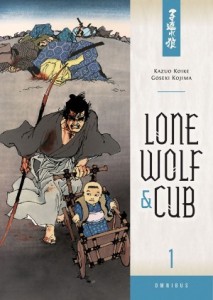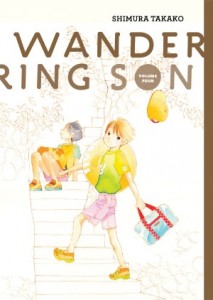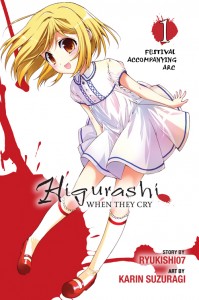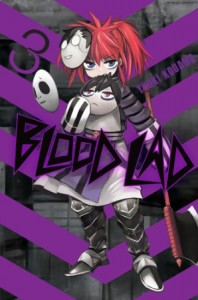Cross Game is one of those series that was so great, I’m a bit angry at myself for taking so long to finish it. The seventh omnibus volume was a bit of a surprise, because something that I expected to happen didn’t, and it didn’t happen in a way that was really interesting with the story that Adachi was building. All along I thought that there’d be a major confrontation between Ko’s team and the antagonistic coach at Kurokoma. But Kurokoma doesn’t even bother to scout their first-round competition because they’ve never heard of the team. Daimon’s arrogance is on full display as he talks to Junpei who is on his way to scout Seishu’s first-round opponent. Daimon says of his competition that he doesn’t even know what they are called, they’re “some no-name school…a team I have no intention of remembering…” The no-name team ends up being Seishu’s next opponent, as Kurokoma is defeated in the first round. Daimon’s comeuppance didn’t come at the hands of Seishu, it came from his own internal failings. In most other shonen manga there’s be a more simplistic confrontation between the two teams during the tournament, but thankfully Adachi doesn’t write his manga in an expected way.
Junpei has proposed to the oldest Tsukishima daughter Ichiyo, and she’s answered that she’ll marry him if Seishu gets to Koshien, adding an extra element of romantic tension to every baseball game. Ko’s finally reached a point where he can’t rely on Aoba for advice. His athletic abilities keep growing and as he tries to adjust his form after throwing the ball faster than he has before, Aoba can’t help him because she’s never thrown a ball that fast. Akane is hospitalized, and the idea of losing her combined with her similarity to Wakaba, makes the summer seem a bit eerie. Ko seems largely unflappable through the whole situation and Aoba comments to Yuhei that he seems cold. Yuhei comments that Ko knows “some things you just gotta do. Other things, you can only have faith…”
One of the things I love is the way simple scenes end up saying so much about the relationships between the characters. Aoba and Ko are riding an empty train together and she makes a point of sitting as far away from him as possible. Ko comments that the distance between them never changes and when she sharply asks if he said anything, he just replies “Nope.”
As the series comes to a close, I was reminded all over again how for a manga the focuses so intensely on baseball, it isn’t really about baseball at all in terms of the motivations and actions of the characters. Ko’s calm and constant training is touched off by the idea that Aoba’s will only like a boy who can pitch a 100 mph fastball. As All of Ko’s training begins to pay off with some inspired pitching as his team becomes a contender for Koshien, his pitches start clocking at higher and higher speeds. As Aoba watches Ko she thinks that he used to be like her, overly emotional and with a quick temper, but now “he’s just like Wakaba.”
During the final game there’s parallel baseball action and emotional revelation happening, as the reader sees the depth of Aoba’s hatred for Ko, and how that hatred is a proxy for dealing with Wakaba’s death, and how stoic and emotionally mature Ko is to just let himself be the object of Aoba’s scorn. During a pivotal moment Ko has to bat, and he hands the umpire a token, putting himself firmly back in the mental space of all of the times he’s practiced his batting at the Tsukishima’s batting cage. Adachi introduces these moments in such an off-hand naturalistic way that the symbolism involved never seems forced or overly precious. As the series concluded I realized that more than just showing the dramatic struggles of a high-school baseball team, Cross Game is really a classic romance manga, with some closing moments that would put most shoujo manga to shame just in terms of the emotional depth portrayed. Ko and Aoba are one of my favorite manga couples, and Cross Game really is a work to be treasured.






 SEAN: Um,
SEAN: Um, 








 First, I forgot this last week, but the 9th light novel of the Haruhi Suzumiya series, The Dissociation of Haruhi Suzumiya, is out this week. This one is part of a 3-book set (Books 10-11 are coming out here as one big book around Thanksgiving) that revitalized the franchise, giving the series a shot in the arm, as well as a new rival for Kyon’s affections… or is she? Good stuff.
First, I forgot this last week, but the 9th light novel of the Haruhi Suzumiya series, The Dissociation of Haruhi Suzumiya, is out this week. This one is part of a 3-book set (Books 10-11 are coming out here as one big book around Thanksgiving) that revitalized the franchise, giving the series a shot in the arm, as well as a new rival for Kyon’s affections… or is she? Good stuff.

 Big news this week, Nisekoi will be getting an anime. Perhaps a bit early, but I think we’ve got enough stories to cover several episodes, and at the very least this means Nisekoi isn’t going anywhere. It’s a big milestone for the series, considering how many new manga can’t last in Weekly Shonen Jump. Fingers crossed that the anime is well made and Nisekoi keeps going strong for however long Komi Naoshi wants.
Big news this week, Nisekoi will be getting an anime. Perhaps a bit early, but I think we’ve got enough stories to cover several episodes, and at the very least this means Nisekoi isn’t going anywhere. It’s a big milestone for the series, considering how many new manga can’t last in Weekly Shonen Jump. Fingers crossed that the anime is well made and Nisekoi keeps going strong for however long Komi Naoshi wants. 





